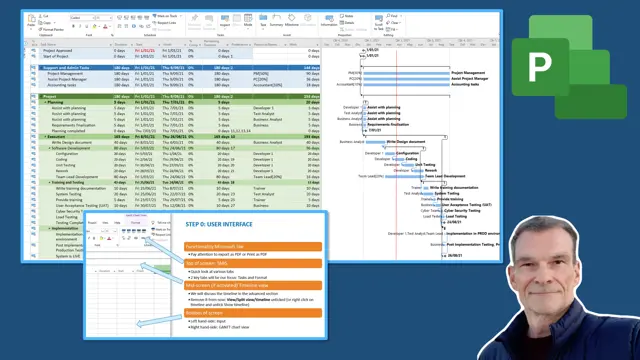
Schedule with MS Project like a Pro
Start from no knowledge and become a scheduling expert using Microsoft Project
Your Life Your Project
Summary
- Reed Courses Certificate of Completion - Free
Add to basket or enquire
Overview
Do you want to know how the professional project managers use MS project for scheduling?
Are you a beginner and want to learn to schedule with MS Project the way professionals do it without going through the soporific details of functions that are never used?
Curriculum
Course media
Description
Overview
This course will show you how to create a schedule in Microsoft Project like pros do.
The course focuses on the most importantfunctionality that is used in real life, on real projects. In my 20+ years as Project Manager I have only used the functions outlined in this course.
Project Managers simply do not have time to build complex projects schedules. Schedules need to be
easy to maintain / fast to update
easy to share / easy to understand
For this reason Project Managers only use a few (but powerful) components of the Microsoft Project / MS Project functionality.
This course focuses on what knowledge is required to build a solid and usable schedule. The type of schedule project managers needs, for him/her but also to present a clear timeline to peers and Management.
There are 3 main chapters to this course:
In the introduction, I walk you through the software.
First very briefly then
In more detail where I show you the main functionalities.
Part 1 will show you
The main functionality
How to build a schedule in 6 steps
Practice activity for each concept.
In Part 2 we will
Review some more advanced concepts.
Do a practice activity for this Part.
Finally in the conclusion I will explain some other functionalities that are never used.
Have fun!
Who is this course for?
Beginner and Intermediates who struggle to make it to the Expert level
Requirements
There are some optional exercises that would require you to have MS Project available.
If you just want to understand how MS Project work of course it's fine not to have the product.
Career path
MS project knowledge is an indispensable skill if you want to go into Project Management (or for Project Administrator or Schedulers)
Questions and answers
Currently there are no Q&As for this course. Be the first to ask a question.
Certificates
Reed Courses Certificate of Completion
Digital certificate - Included
Will be downloadable when all lectures have been completed.
Reviews
Legal information
This course is advertised on reed.co.uk by the Course Provider, whose terms and conditions apply. Purchases are made directly from the Course Provider, and as such, content and materials are supplied by the Course Provider directly. Reed is acting as agent and not reseller in relation to this course. Reed's only responsibility is to facilitate your payment for the course. It is your responsibility to review and agree to the Course Provider's terms and conditions and satisfy yourself as to the suitability of the course you intend to purchase. Reed will not have any responsibility for the content of the course and/or associated materials.


